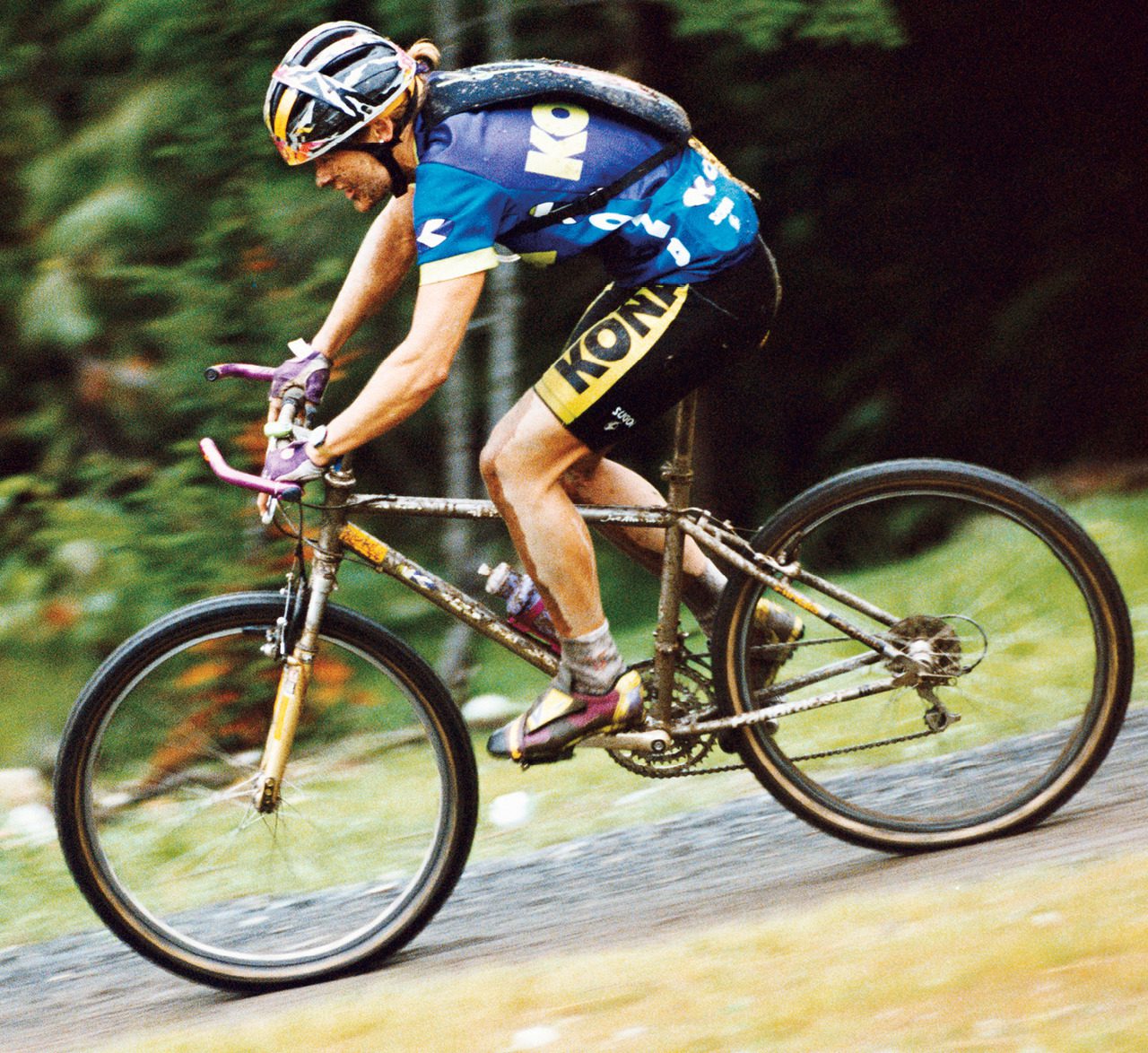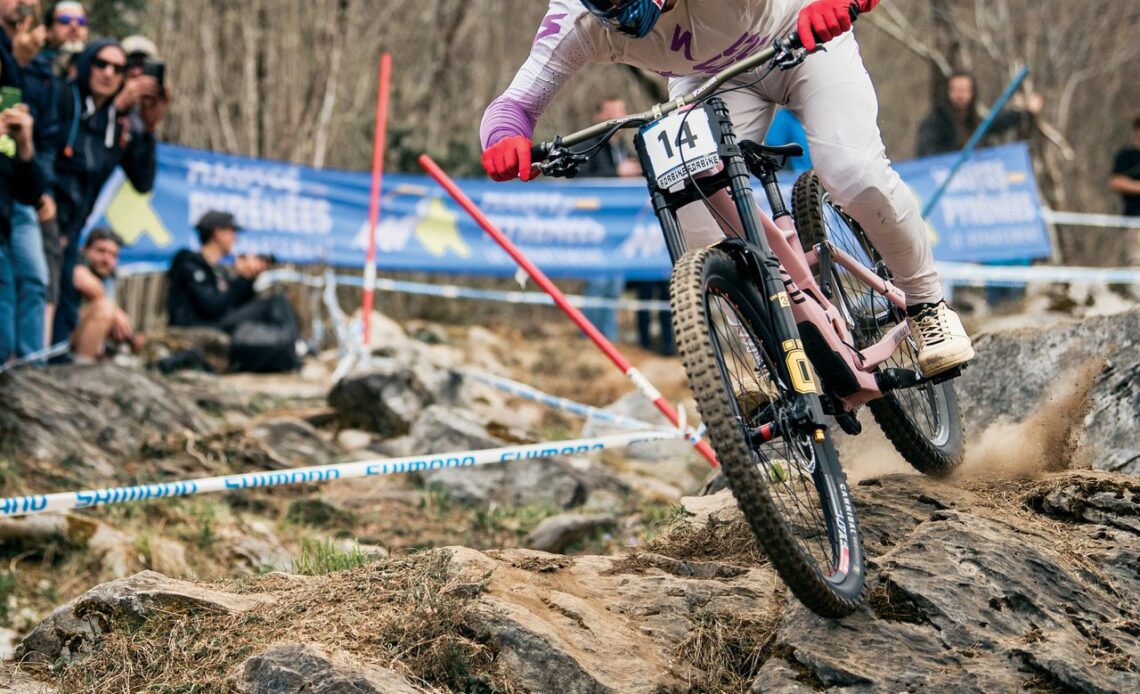At 10 a.m. on March 27 in Lourdes, France, Jackson Goldstone crossed the line with the fastest junior men’s time in the first World Cup downhill of 2022. The 2021 world champ from Squamish was wearing the wold champion’s rainbow jersey. Thirty minutes later, Gracey Hemstreet got a win of her own in the junior women’s race. Three hours after that, Finn Iles finished second in the elite men’s race, his career-best result. There was a Canadian on three of the four podiums that afternoon.
It was a historic day for Canadian downhill. There was a poetic moment of symmetry, too. The triple podium happened 10 years after Stevie Smith’s first World Cup win, and at the same French venue as the iconic Canadian’s last World Cup podium in 2016.
More important, the Lourdes World Cup isn’t a stand-alone event. In late May, Hemstreet landed another win at Fort William. Goldstone was second at the same event. Those results follow a 2021 season that saw two Canadians, Iles and Mark Wallace, stand together on the elite men’s podium for the first time at Snowshoe, W. Va., another big moment for Canada’s downhill program.
[Ed. this story was submitted in late May. Since then, the incredible Canadian results have stacked up including Finn Iles first elite World Cup win at home at Mont-Sainte-Anne]
Look a little further back and you see a string of junior successes from Elliot Jamieson, Lucas Cruz, Seth Sherlock, Ethan Shandro and Patrick Laffey in 2018 and 2019, Miranda Miller’s elite women’s world championship title in 2017 and lles’ own 2016 junior world championship, with Magnus Manson on the podium in second.
What emerges from all these stats is a picture of a national program approaching critical mass. Exceptional individual results are turning into a culture of racing. That culture, the wider scene within this country, has momentum. Could this be the start of a new golden age for Canadian downhill? Maybe it’s started already.

A golden age, but not the first (a Devine history)
Canada’s success in downhill racing dates back to the sport’s beginnings. In fact, Cindy Devine is the first ever official DH world champion. She won that title in 1990 in Durango, Colo., after a string of similarly strong results in the “unofficial” years before the UCI took over.
“It was a different era back then,”…
Click Here to Read the Full Original Article at Canadian Cycling Magazine…

